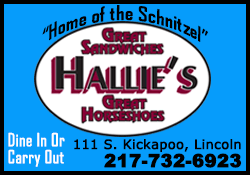|
 Author
Macdonald: Playing catch with 'death in a feathered
jacket' Author
Macdonald: Playing catch with 'death in a feathered
jacket'
 Send a link to a friend
Send a link to a friend
(This
story filed on Jan 27, 2015 corrects paragraph 12 to say 1930s, not 1940s)
[January 28, 2015]
By Hugh Lawson
LONDON (Reuters) - To help
cope with her grief after her father's sudden death,
falconer and nature writer Helen Macdonald, who on
Tuesday won the Costa book prize, locked herself in the
house with a large, untrained bird of prey.
|
|
 A peculiar choice, perhaps, but for Macdonald the process of
training her goshawk was a form of distraction and a way of
putting her world back together. A peculiar choice, perhaps, but for Macdonald the process of
training her goshawk was a form of distraction and a way of
putting her world back together.
"I saw in the hawk all the things I wanted to be. They don't
experience grief, they don't have attachments like we do,
they're very solitary," she said in a telephone interview before
the Costa prize winner was announced.
"There's a lot of unspoken rage tied up when you lose a very
loved parent, and I could kind of express that through the
hawk," she said.
It was also the beginning of a long journey that would culminate
in the publication of "H Is For Hawk", a powerful memoir that
won Macdonald the 2014 Samuel Johnson Prize for Non-Fiction last
November, and now the 2014 Costa Book Award.
The book emerged from the journals Macdonald kept as she worked
with her goshawk, whom she named Mabel from the Latin for
"loveable".

"It very slowly dawned on me that there was a story here that
was bigger than just me and a hawk. It was about life and death
and making sense of it all, and about our relationship to
nature," she said.
She was also looking for companionship, not something you might
expect from "30 ounces of death in a feathered jacket", as she
describes Mabel in her book, but which she nevertheless finds,
sitting on the living room floor and tossing up pieces of
crumpled paper for Mabel to catch in her beak.
"I've recently discovered that quite a lot of male goshawkers
play with their hawks - they just don't let on about it," she
said, laughing out loud.
Macdonald fell in love with falconry when she was a young girl,
and describes it as "a fascinating piece of human-animal
interaction".
"It's an incredibly ancient thing. This partnership has been
going on for literally millennia."
[to top of second column] |

It's also a process that can lead to some inadvertent poaching as
the hawk goes to work in the countryside.
"There were quite a few pheasants that found their way into my pot
and I used to share with Mabel that weren't technically mine," she
said.
"I live in constant fear that there's a going to be a knock on the
door one day and someone's going to say 'It was you!'"
rediscovered the work of T.H. White, author of "The Once And Future
King" and, among other things, a book about his own, much less
successful experience of training a goshawk in the 1930s.
In her book we follow the unhappy story of White's life and
suppressed homosexuality almost as closely as their separate
experiences training hawks.
"I still feel very conflicted in writing about him in the sense that
he was quite an unpleasant character," Macdonald said.
The book's success has taken her by surprise, or as she put it: "I
thought it was a very strange story and maybe only falconers would
want to read it."
With reading tours and promotional trips, she has been kept very
busy and she is keen to get back to her work.

"I love what's going on now, but I'm still looking forward to having
the time to go out birdwatching and walk around and get down to some
proper writing again."
(Editing by Michael Roddy and Mark Heinrich)
[© 2015 Thomson Reuters. All rights
reserved.] Copyright 2015 Reuters. All rights reserved. This material may not be published,
broadcast, rewritten or redistributed. |